Exadata Database
To delete an existing Exadata Database, follow these steps.
There is currently no content for this page. Oracle Database@Google Cloud team intends to add content here, and this placeholder text is provided until that text is added. The Oracle Database@Google Cloud team is excited about future new features, enhancements, and fixes to this product and this accompanying documentation. We strongly recommend you watch this page for those updates.
Oracle recommends taking a backup of your databases before deletion to prevent potential data loss.
Note
Once your database is deleted, the stored data cannot be recovered if you don't have a backup.Exadata Container Databases (CDBs)
- From the OCI console, select Oracle Exadata Database Service on Dedicated Infrastructure, and then select Exadata VM Clusters
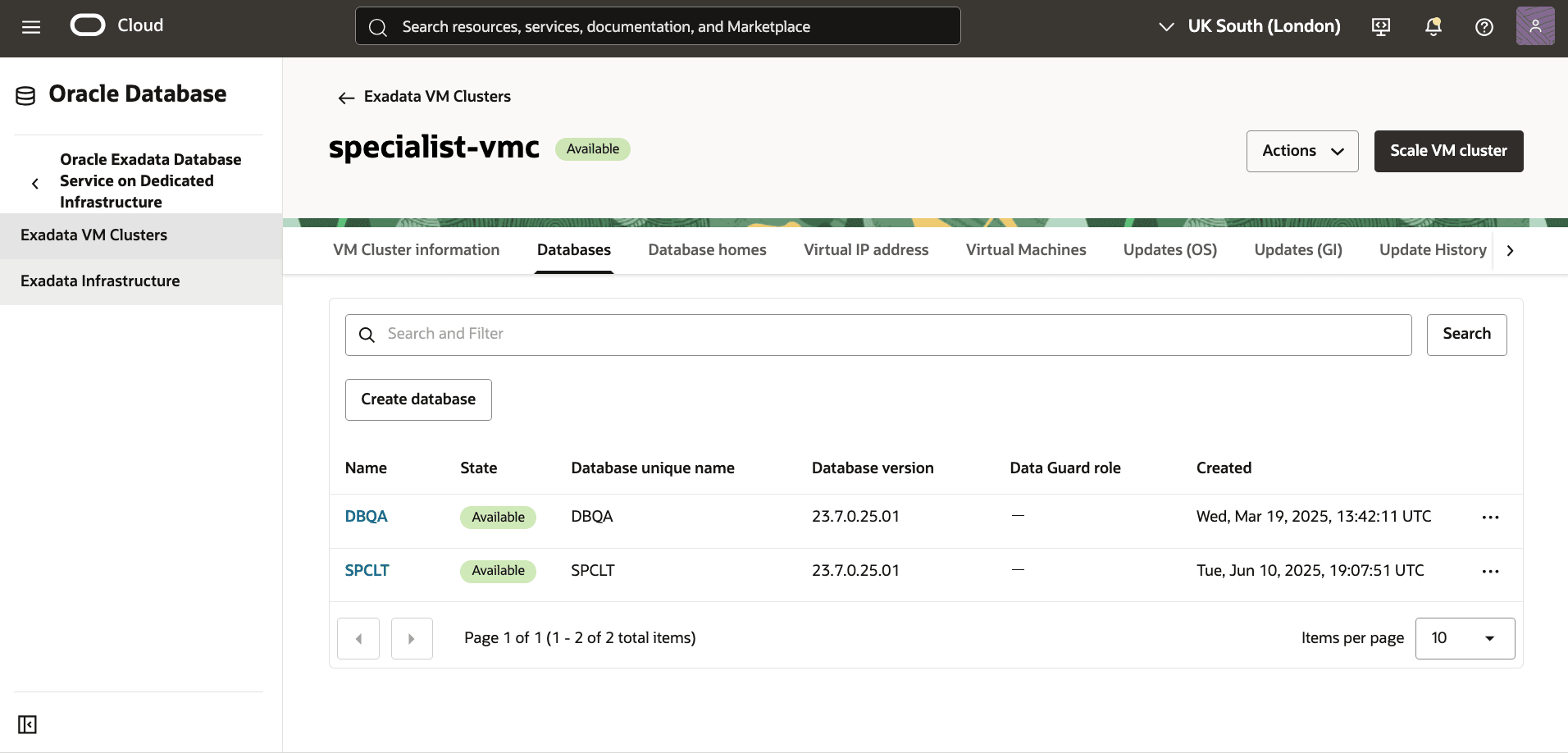
- Select your Exadata VM Cluster that you are using, and then select the Databases tab.
- From the database resource list, select the three-dot navigation menu, and then select the Terminate option to delete your selected database.
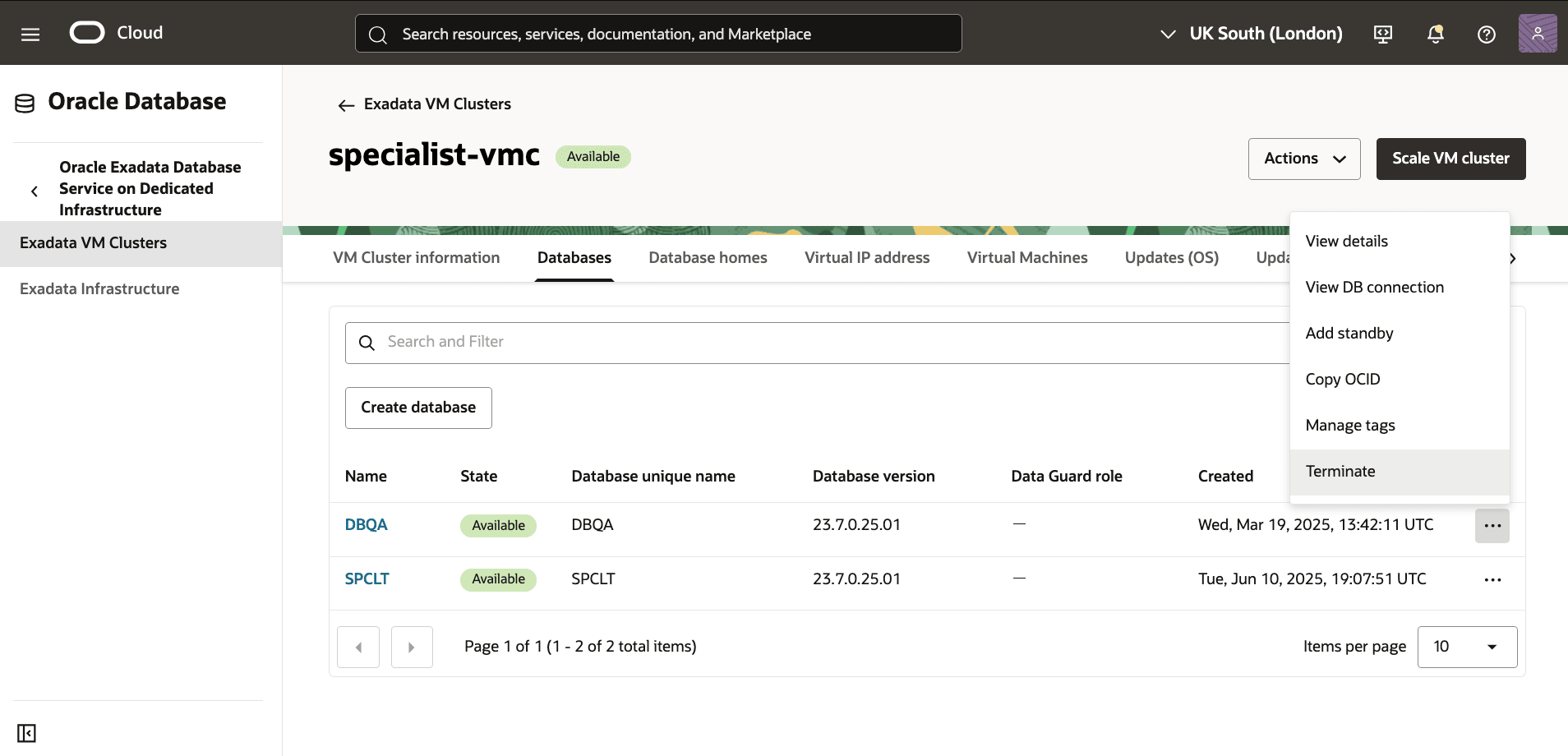
- To confirm your action, you must enter name of the database in the field, and then select the Terminate Database button.
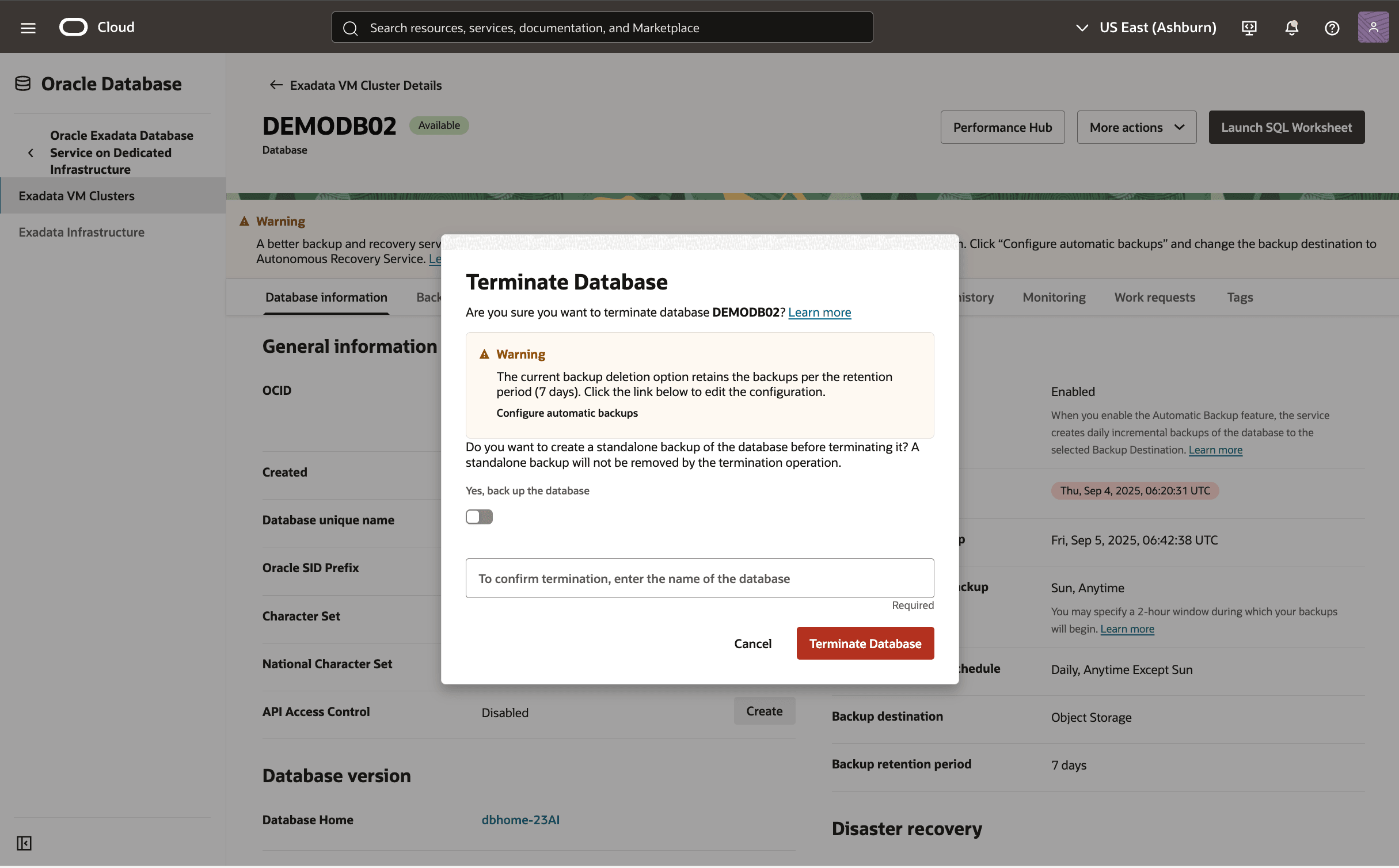
Exadata Pluggable Databases (PDBs)
- From the OCI console, select Oracle Exadata Database Service on Dedicated Infrastructure, and then select Exadata VM Clusters.
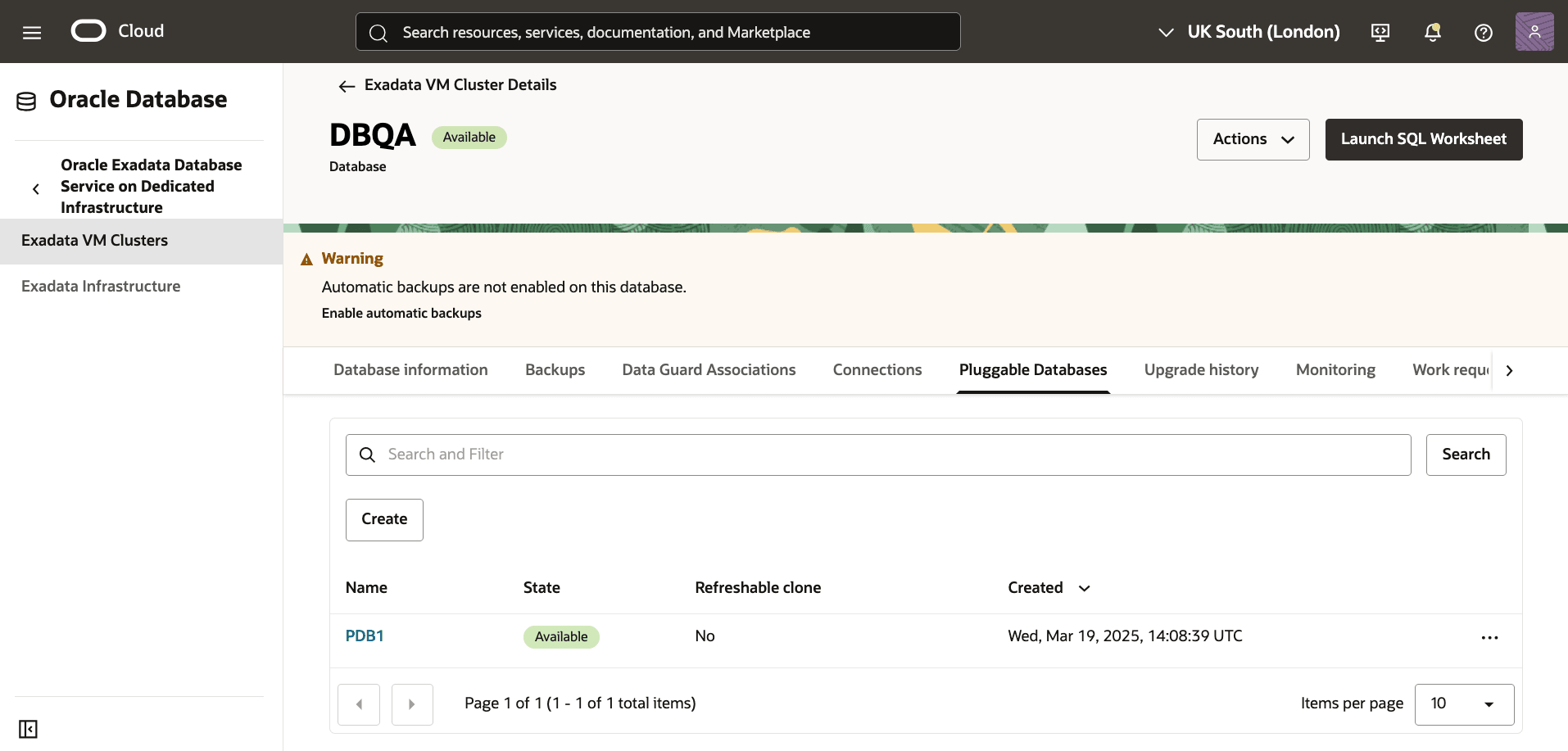
- Select the cluster that you are using, and then select the Databases tab.
- Select the Database that you are using, and then select the Pluggable Databases tab.
- Select your Pluggable Database, and then select the three-dot navigation menu to access available action options. Select the Delete option to delete your pluggable database.
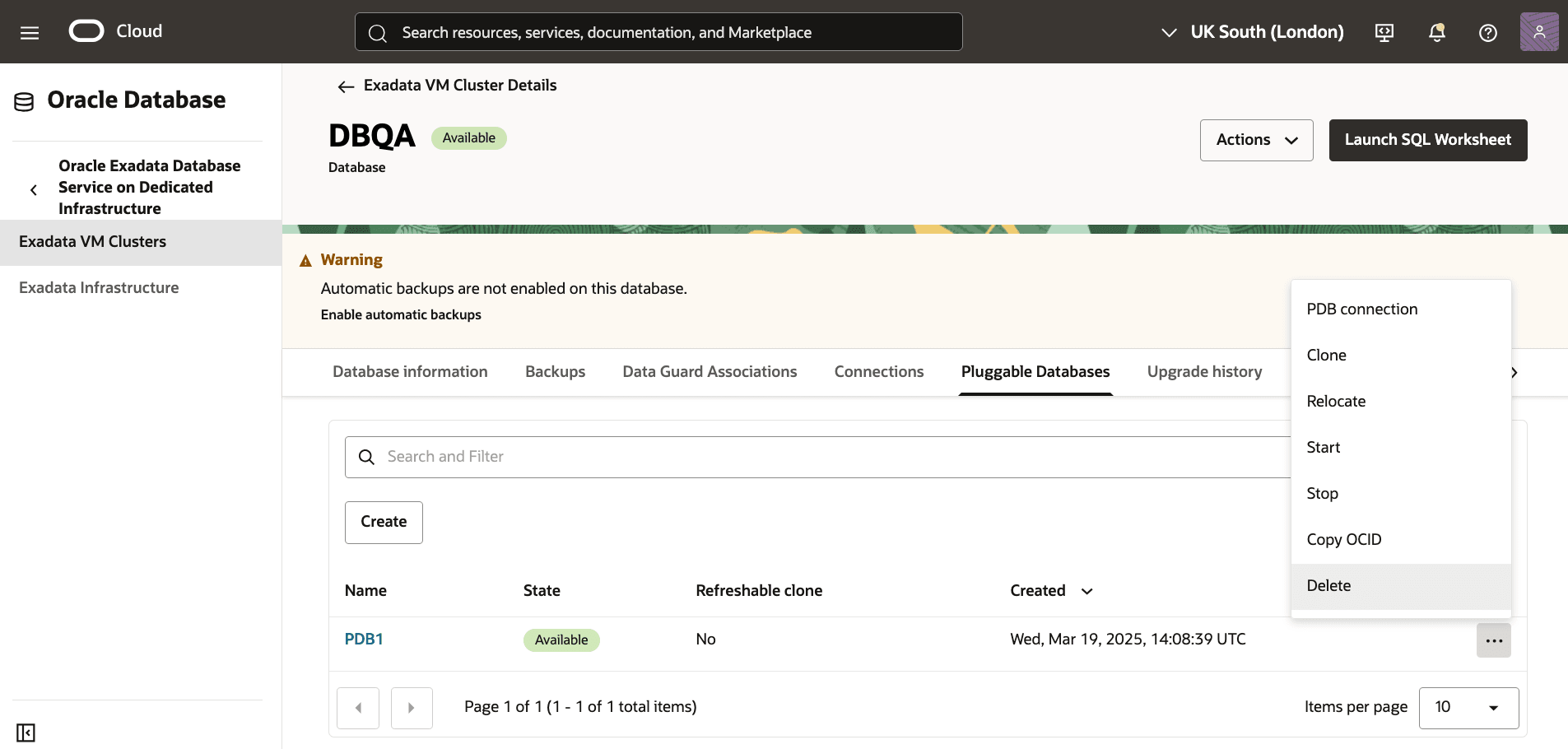
- To confirm your action, you must enter name of the pluggable database in the field, and then select the Delete button.
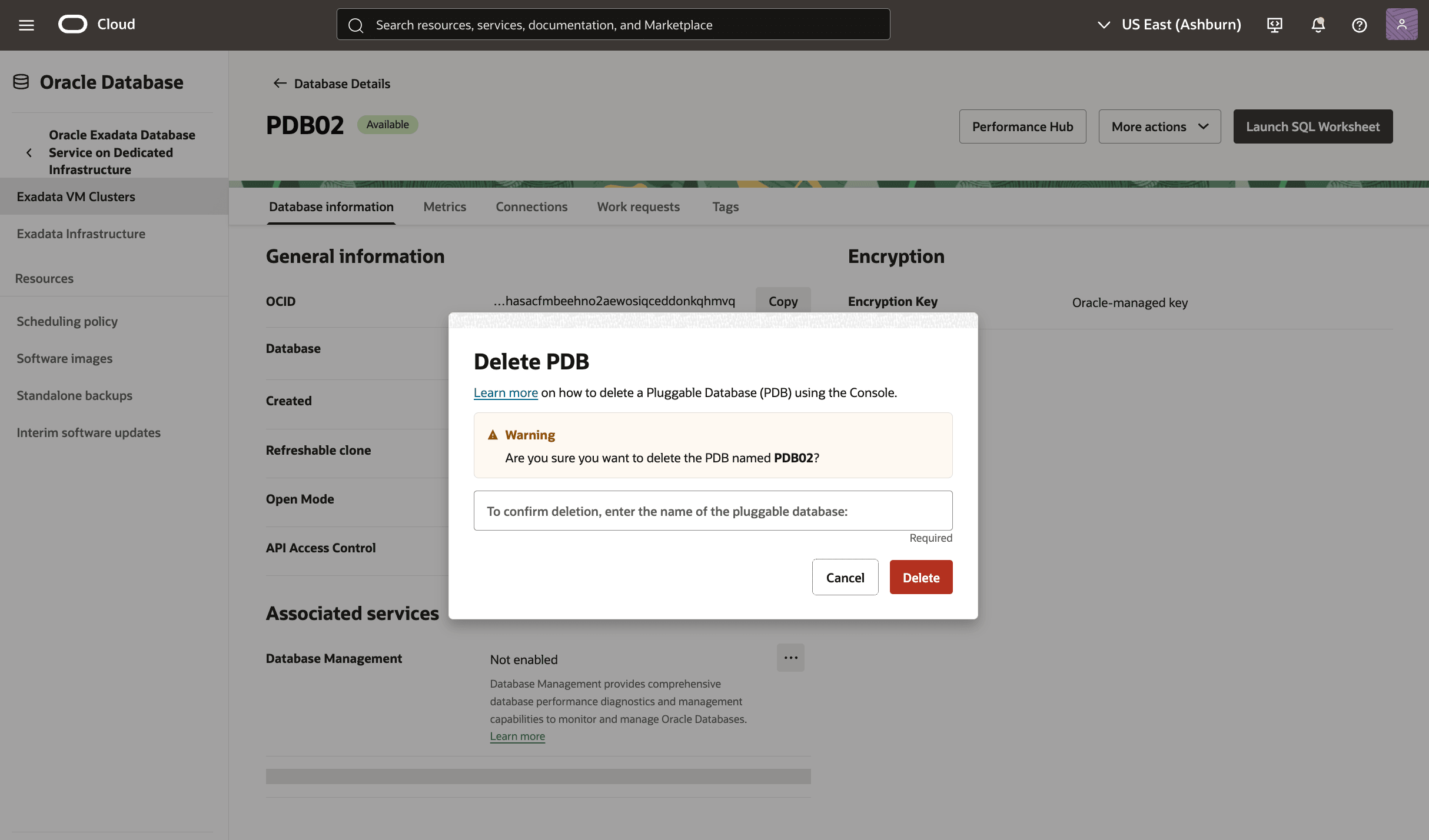
- From the OCI console, select Oracle Exadata Database Service on Dedicated Infrastructure, and then select Exadata VM Clusters
There is currently no content for this page. Oracle Database@Google Cloud team intends to add content here, and this placeholder text is provided until that text is added. The Oracle Database@Google Cloud team is excited about future new features, enhancements, and fixes to this product and this accompanying documentation. We strongly recommend you watch this page for those updates.
There is currently no content for this page. Oracle Database@Google Cloud team intends to add content here, and this placeholder text is provided until that text is added. The Oracle Database@Google Cloud team is excited about future new features, enhancements, and fixes to this product and this accompanying documentation. We strongly recommend you watch this page for those updates.
There is currently no content for this page. Oracle Database@Google Cloud team intends to add content here, and this placeholder text is provided until that text is added. The Oracle Database@Google Cloud team is excited about future new features, enhancements, and fixes to this product and this accompanying documentation. We strongly recommend you watch this page for those updates.